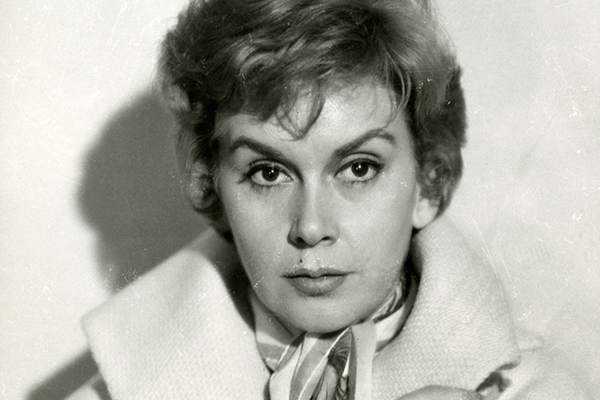Ana Mariscal,
great artist of Spain
Posted on 17.10.2023
An enormously popular actress in Spain in the 1940s, Mariscal was also a fearless director whose work has been overlooked for far too long.
Old habits die hard. So do labels. Ana Mariscal (1923-1995) suffered from this all her life. Her biggest crime? Becoming an ultra-famous actress during Franco's dictatorship in the film Raza (1941), a propagandist vehicle. Franco, who had emerged El Caudillo (“The Leader”) in 1936, after forcing out the government of the Republic, wanted Raza to capture "eternal" Spain (i.e., Catholic and unified) for posterity. Upon her death in 1995, the newspapers wasted no ink on her obituary, describing her with polite contempt as "the muse of the old regime", and not much else.
Yet the artistic career of this powerful woman was far richer and more complex, as exemplified by four of the films she directed in the 1950s and 1960s, screening at this year’s Lumière film festival in Lyon. The Mariscal renovation project was made possible by the Filmoteca Española and the restoration work carried out by her son, David Garcia. “I did it out of attachment to my mother's art”, Garcia explained, “but also to my father’s; he was her cinematographer and co-producer of their films. Their most emblematic work, El Camino, has been given a new lease of life thanks to the interest shown by the Filmoteca de Navarra, which in turn sparked the interest of a French distributor (Karmafilms, editor's note), until it ended up at Cannes Classics in 2021."
Born into the middle classes in Toledo, Ana Mariscal became an actress following in the footsteps of her older brother, Luis Arroyo, a young leading man in the late 1930s. She played one femme fatale after another, wearing a veil and a hat that lent her eyes an angular charm. The daughter of a republican, atheist woodworker, Ana never denied the popularity she had acquired in those dark days of history, and no one ever stopped her from doing her job as she saw fit.

© DR
She first began in the theatre, deciding to stage Yerma in Barcelona in 1947, when no one dared to play Garcia Lorca, who had been categorised as a Republican poet. Two years earlier, the daring actress had caused a scandal in Madrid by playing the role of Don Juan in José Zorrilla's play, an initiative frowned upon by the rigid society of the time. When the 1950s came about, Ana had made up her mind. "She felt she could do it", comments David Garcia. “She and my father shared an unconditional love of cinema and set up their own production company."
Ana's first foray into film directing, Segundo Lopez, aventurero urbano, was inspired by Italian neo-realism. "I didn't think for a second about technique", wrote Ana Mariscal. "I simply asked myself whether I would be able to express my way of seeing life through images..." The answer was obviously yes. And despite the commercial failure of the film, whose distribution was hampered by the undermining of religious authorities, Ana Mariscal started again five years down the road, and would end up making eleven feature films in a wide variety of genres. In 2018, Mark Cousins paid tribute to her in Women Make Film: A New Road Movie Through Cinema: "The framing of her films is on a par with the Hollywood greats, with a very high standard of lighting work and shot composition." The following year, the Irish documentary filmmaker placed a flower on her grave, expressing surprise that it had taken him "so long to find it”. No matter. Ana Mariscal is as alive as ever.
Carlos Gomez
SCREENINGS
Segundo López, aventurero urbano by Ana Mariscal (1953, 1h20)
Lumière Terreaux – Wednesday, 18 October at 11am
Institut Lumière (Villa) – Sunday, 22 October at 4.15pm
Con la vida hicieron fuego by Ana Mariscal (1959, 1h17)
Lumière Terreaux – Tuesday, 17 October at 2.30pm / Saturday, 21 October at 2pm
La quiniela by Ana Mariscal (1960, 1h24)
Pathé Bellecour – Saturday, 21 October at 7.30pm
El Camino by Ana Mariscal (1964, 1h31)
Lumière Terreaux – Thursday, 19 October at 2.30pm
Pathé Bellecour – Friday, 20 October at 9.45pm

